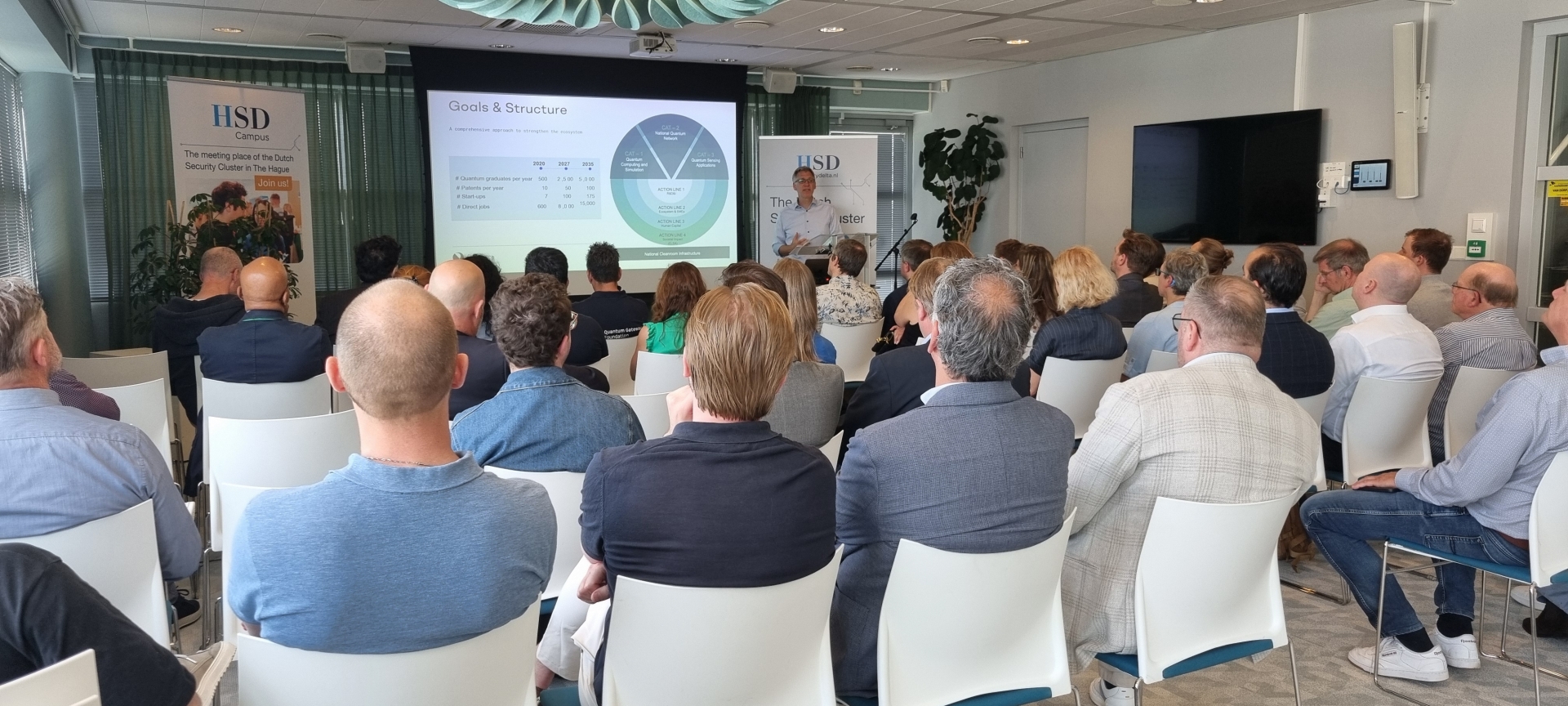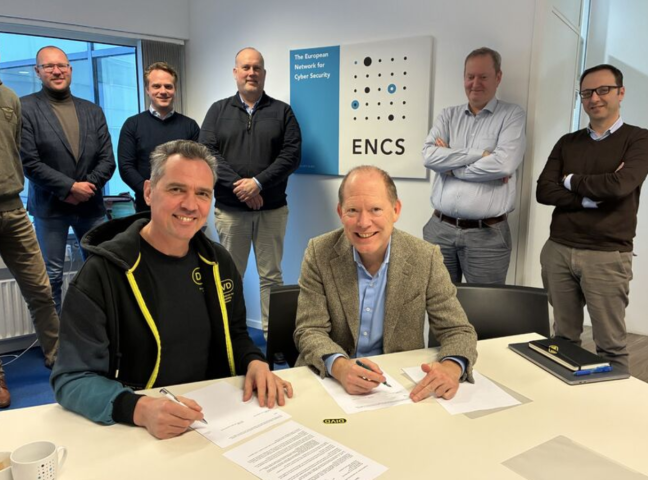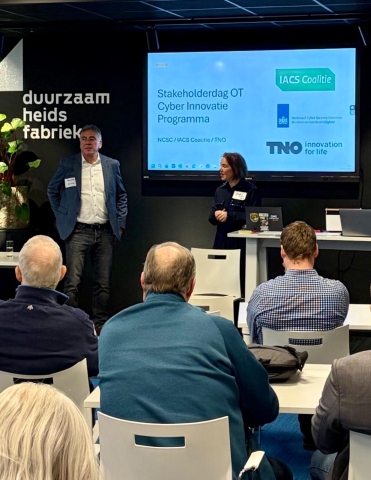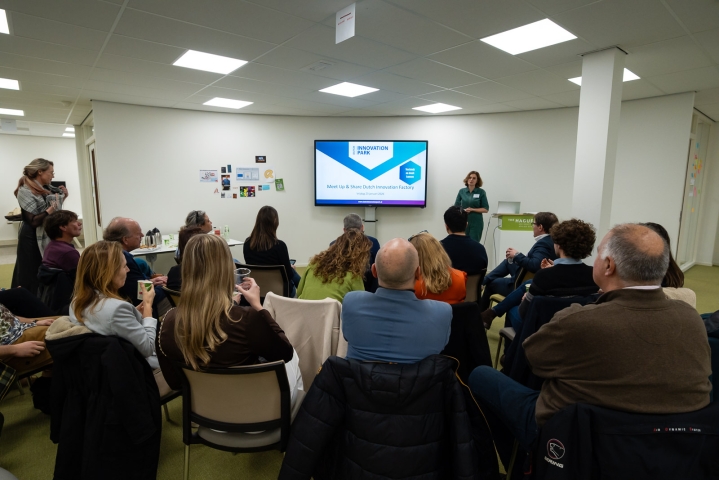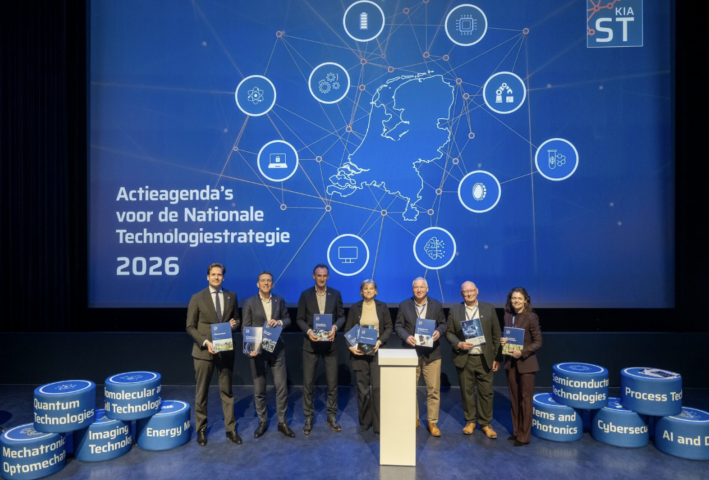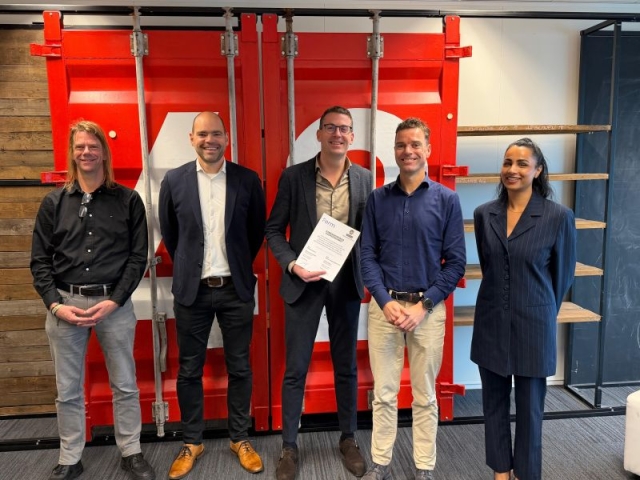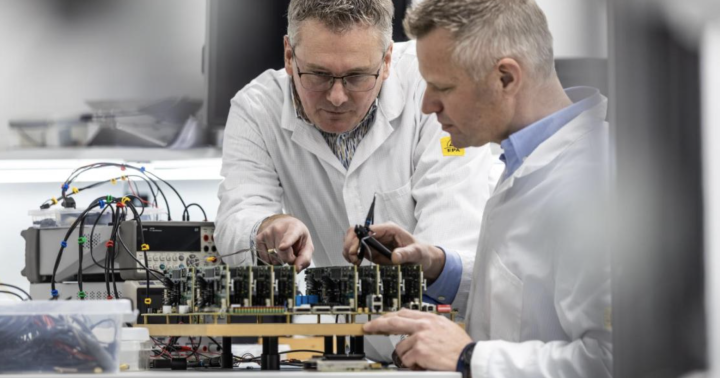Recap | HSD Café on Quantum Technology: A European Perspective
Quantum technology is rapidly evolving, and Europe is striving to define its role in this global landscape. During the latest HSD Café, experts and stakeholders came together to explore the strategic position of the Netherlands in the quantum ecosystem, the urgency of transitioning to post-quantum cryptography, and the challenges and opportunities that lie ahead for public and private organisations. The session highlighted the importance of European alignment, resilient supply chains, and proactive migration strategies to ensure digital trust in a quantum future. Below are the key insights from the session.
Dr. Ulrich Mans (lead strategic partnerships Quantum Delft NL): A European Perspective
Dr. Ulrich Mans opened the event with an insight into the quantum technology ecosystem Quantum Delta NL. He stated that the Netherlands is at the top regarding quantum computing. We are the first EU country with a national strategy, we have major funding, and a good talent pool. He stated that quantum needs global collaboration and discussed a few dilemmas in collaborating with non-EU countries and prerequisites for a successful collaboration, such as investments, open R&D, and EU supply chains. He argued that three things need to be done to deal with the dilemmas.
- The first thing is to promote quantum technology. It involves accelerating alignment across EU member states, leveraging frontrunners, embracing quantum procurement, creating incentives for pioneers, expediting post-quantum encryption roll-out, and increasing funding for supply chain gaps
- The second is to protect and make sure that there will be a uniform set of rules and regulations by making it ‘chefsache’ to create a level-playing field and monitor supply chain developments
- Third is to create partnerships by expanding international partnerships, balancing competition and collaboration with the US, and embracing the UK and Switzerland as key partners.
Dimitri van Esch (CEO and co-founder Quantum Gateway Foundation)
Dimitri outlined a doomsday scenario, ‘the quantum apocalypse 2035’: what happens when China cracks down? The results will be devastating, and it happens quicker than most organisations think. It causes social disruption, for instance, when online payments are not possible.
He took us through a timeline when new technology calls for new standards, certification, followed by law and regulation. This is about the time that CEO’s should take action, but then it will be too late for the migration to post-quantum cryptography. It will take several years to migrate existing apps, api back ends, active websites, programming languages, libraries, and lines of COBOL source code.
Dimitri dived into staggering figures such as 8.93 million apps and 700+ programming languages worldwide.
He advised organisations to commit to “no-regret moves” such as carrying out a risk assessment, dependency mapping, and a backup plan, and referred to the Post Quantum Cryptography migration manual of TNO, AIVD, and CWI. In this handbook, you can find guidance for the migration to post-quantum cryptography. However, the migration is not just for large organisations but also small and medium enterprises.
And last but not least Dimitri closed with a grant from Digitalzh in cooperation with Innovation Quarter where five SME companies can have a PQC Baseline Assessment, the smallest quickest step any organisation can take right now to map out whether they are getting started now including a consilidated report with identified findings, risks and possible mitigation measures for short-, mid and long-term.
Thomas Attema (senior researcher TNO and CWI): Quantum threat to cryptography
Thomas started his presentation with the statement that quantum computing is just another chapter in the cryptographic arms race. Cryptography has a long history of codes being developed and, sometimes centuries later, being broken. In the current chapter, cryptographers are strengthening their protocols to protect against powerful quantum computers. Developments in quantum computing are progressing at a rapid pace, but many challenges remain, so a nuanced perspective is warranted.
At the same time, store now, decrypt later attacks emphasize the urgency in mitigating the quantum threat. Fortunately, as of 2024, new cryptographic standards are available. Some organisations have already deployed these new standards, and have thereby mitigated certain quantum threats. Thomas recommends that organisations start the migration to Post-Quantum Cryptography (PQC). Migrating to Post-Quantum Cryptography is hard due to technical and non-technical challenges. However, concrete guidelines are available, e.g., in the PQC migration handbook.
Dennis Dortland (Strategisch Innovatieconsultant PortBase): Entanglement between the smallest particles and the biggest infrastructures
Dennis delved into Quantum communication in practice in the Port of Rotterdam. Transport is a critical system, as seen in, for example, the accident with the containership in the Suez Canal. The blockage caused significant logistical disruptions worldwide. The port of Rotterdam and the industrial area around it have a critical as well as complex infrastructure network and ports with sensitive data. This makes the Port of Rotterdam a key target for attackers.
Dennis argued the need for quantum networks and Quantum Key Distribution (QKD), a secure communication method for exchanging encryption keys. He elaborated on Q*Birds scalable QKD proof of concept and the lessons they want to learn. One thing stood out: the gap between innovation and operations is real. Quantum is mostly seen as a project for the future; there is still little sense of urgency.
Dennis also clarified the QKD and technology supply chain with a consortium of the Port of Rotterdam Authority, Eurofiber, Q*Bird, Single Quantum, Cisco, Portbase, Intermax, and InnovationQuarter. Together with hardware subsystems, hardware systems, network operators/service providers, end-user applications, and ecosystem suppliers, they succeeded in building the first scalable quantum internet connection. Dennis explained that networked QKD is not yet commercially ready, but that they are working on that, and certification is needed.
Key Takeaway
Quantum computing is coming faster than most anticipate. The EU must intensify its strategy, and organisations—both large and small—must start preparing for the cryptographic shift now. The tools and support are already available. Waiting is the real risk.
Security Delta thanks the speakers and audience for their valuable contributions and looks forward to future discussions on this topic.
Several times a year, we organise an HSD Café around a key security topic. The HSD Cafés serve to inform the network about the latest developments and opportunities, but also to discuss challenges. The HSD Cafés are organised by HSD Office and are open to professionals, experts, students, and all who are interested.

